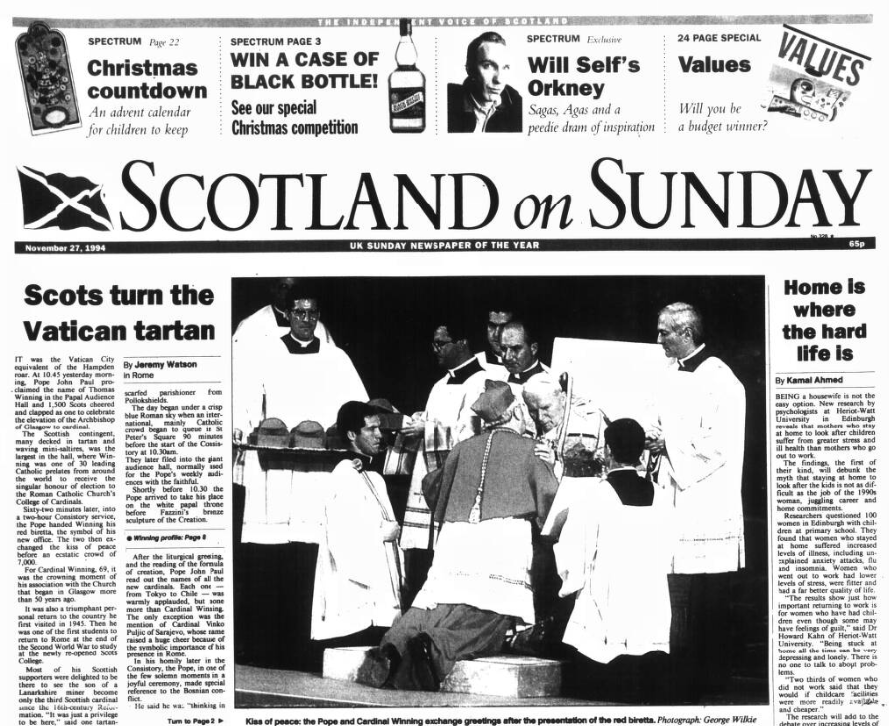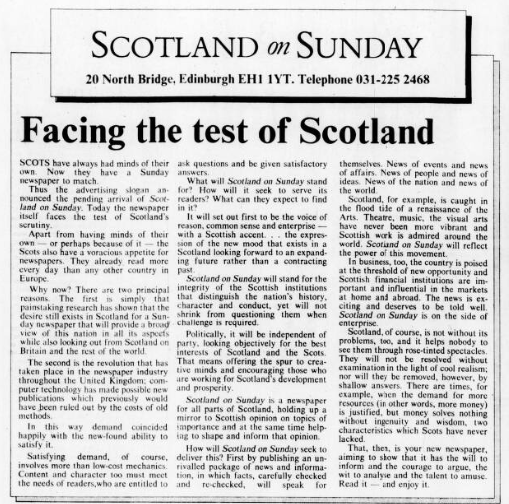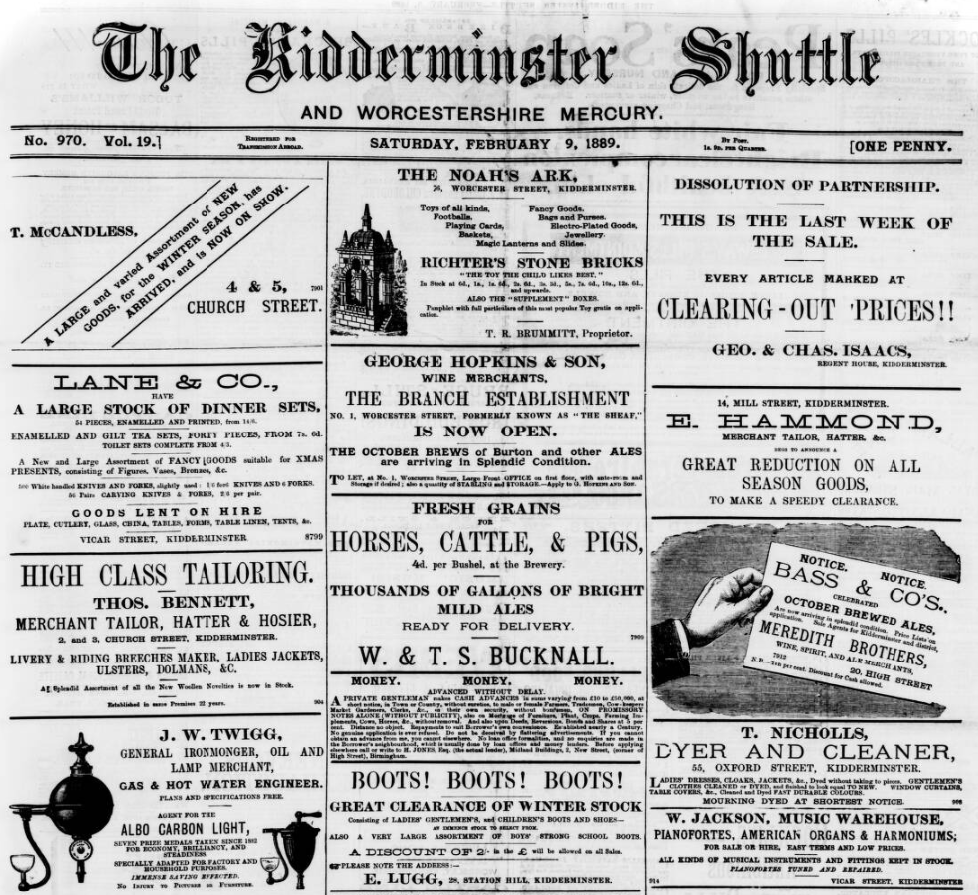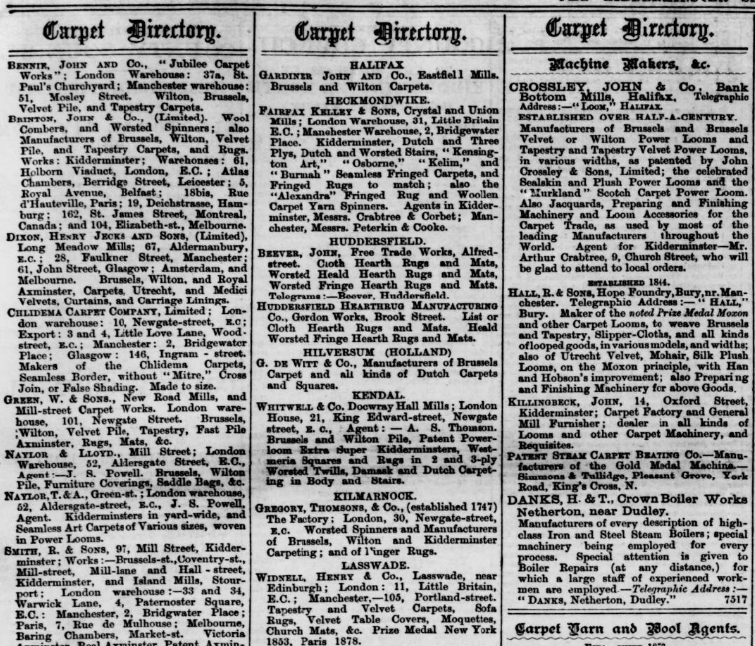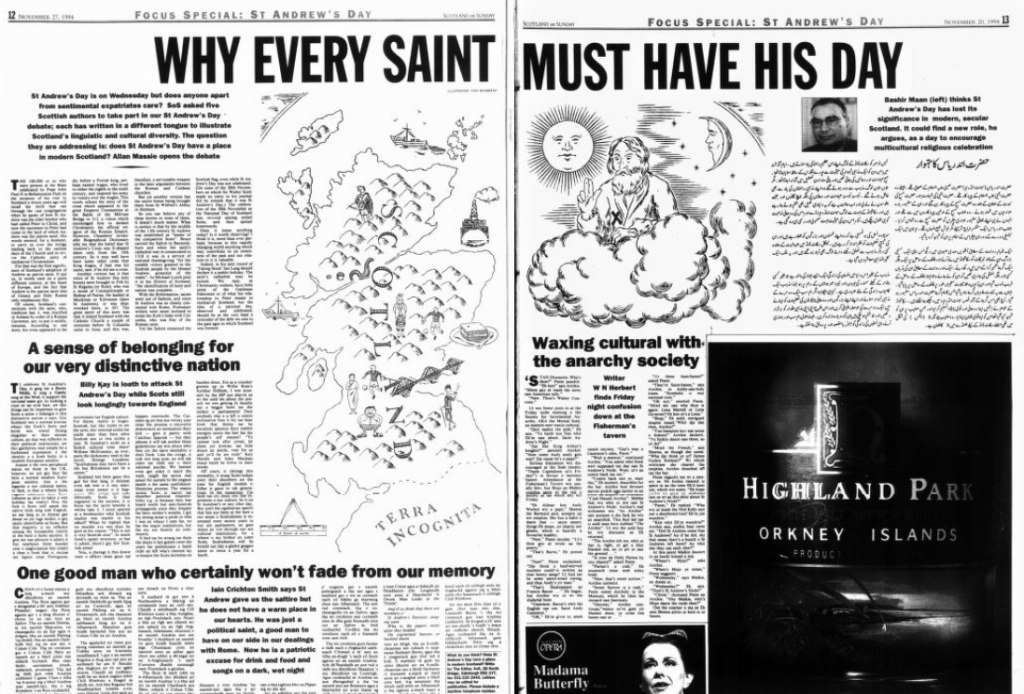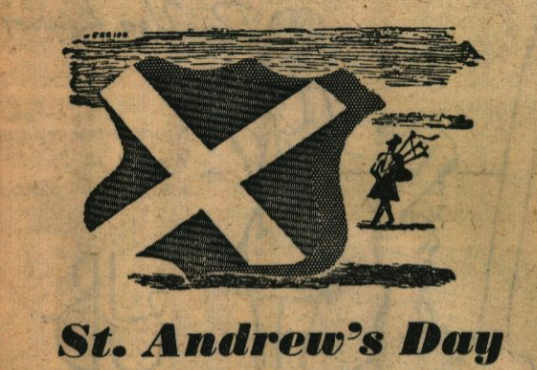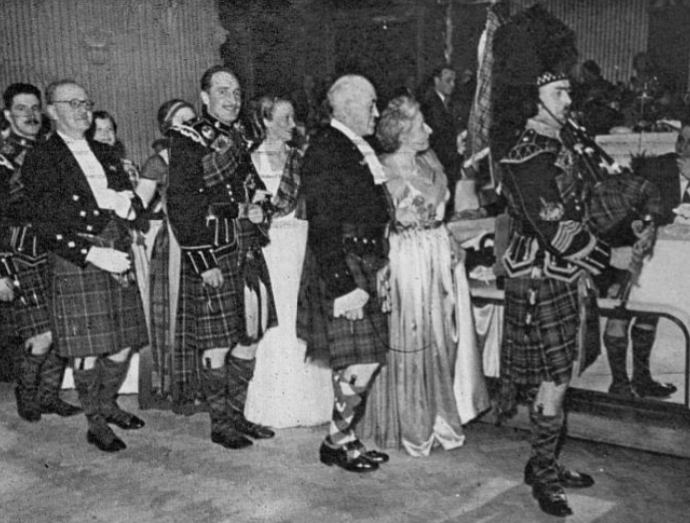To mark St Andrew’s Day this year, the day that celebrates the patron saint of Scotland, we’ve added a very special brand new title to The Archive, Scotland on Sunday, alongside 218,837 brand new pages from across the United Kingdom. That’s not it, we’ve also added one wonderfully named title from the county of Worcestershire, the Kidderminster Shuttle, whilst we’ve updated our existing titles from Carrickfergus to Croydon, from Coleshill to Crowthorne.
So read on to discover more about our duo of new titles this week, and also to learn which of sixteen titles we’ve updated. In addition to all this, using new pages from Scotland on Sunday, we look at the history of St Andrew’s Day, and the celebration’s importance in the modern age.
Register now and explore the Archive
The first of our new duo of titles this week is Scotland on Sunday, which was founded in 1988 in Edinburgh as the sister paper to the historic newspaper The Scotsman. The first edition of Scotland on Sunday appeared on 7 August 1988 at the cost of 40p, the inaugural edition‘s editorial explaining the reasons behind the foundation of the new Scottish Sunday paper:
There are two principle reasons. The first is simply that painstaking research has shown that the desire still exists in Scotland for a Sunday newspaper that will provide a broad view of this nation in all its aspects while also looking out from Scotland on Britain and the rest of the world. The second is the revolution that has taken place throughout the United Kingdom; computer technology has made possible new publications which previously would have been ruled out by the costs of old methods.
What could you expect then from the brand new title Scotland on Sunday? The debut editorial explained how the newspaper would be
…the voice of reason, common sense and enterprise – with a Scottish accent…the expression of the new mood that exists in a Scotland looking forward to an expanding future rather than a contracting past. ‘Scotland on Sunday’ will stand for the integrity of Scottish institutions that distinguish the nation’s history, character and conduct, yet will not shrink from questioning them when challenge is required.
Meanwhile, the new newspaper would be ‘independent of party, looking objectively for the best interests of Scotland and the Scots.’ Scotland on Sunday went on to feature a plethora of articles on different subjects, with leading articles sat alongside finance, business, farming, motoring, arts, books, leisure and television sections.
Initially founded as a broadsheet, in 2013 Scotland on Sunday would switch to a tabloid form. The Sunday newspaper is published to this day in three parts, which consist of an ‘Insight’ section, a sports section, and Spectrum magazine, which also incorporates the At Home feature.
The second of our new duo of newspapers this week is the wonderfully named Kidderminster Shuttle, which was founded in 1870 in the Worcestershire market town of Kidderminster. From the beginning of the eighteenth century, Kidderminster became known for the trade of carpet weaving, and it is from the weaving apparatus of the shuttle that this newspaper takes its name.
During this newspaper’s early years it was known as the Kidderminster Shuttle and Worcestershire Mercury, and it appeared weekly every Saturday at the cost of just one pence. Its eight pages were filled with local, national and international news, alongside more general interest articles, such as a look at ‘Life in New Zealand.’ Taking in the ‘district news’ from the likes of Bewdley, Stourport, Droitwich and Worcester, as well as the latest from the Stourport local board, the main focus of the newspaper, as its title suggests, was the carpet trade.
Indeed, the Kidderminster Shuttle featured a special ‘Carpet Trade Directory,’ alongside looks at new technology within the industry, such as a ‘Carpet-Shearing Machine,’ as well as other carpet-focussed pieces like ‘The Dog and the Carpet Pattern,’ ‘Carpet Trade Humour’ and ‘German Carpet Manufacture.’ Coming second behind this love for the carpet trade was the newspaper’s support of local football team the Kidderminster Harriers F.C., whom the newspaper continues to rally behind to this day.
The Kidderminster Shuttle is now known simply as The Shuttle, and it exists today as a free newspaper, which is distributed to households within in the Wyre Forest area. It is known for its coverage of local politics and institutions, as well as its reports on local team the Kidderminster Harriers.
That may be it from our new titles of the week, Scotland on Sunday and the Kidderminster Shuttle, but with sixteen of our existing titles being updated this week there are still plenty of other new pages for you to explore. Our largest updates of the week are to the Gloucestershire Echo, which sees over 46,000 brand new pages join its ranks, whilst following just behind is the Portadown Times, with 41,000 brand new pages this week.
This week also sees updates to fellow Northern Irish titles the Londonderry Sentinel and the Lurgan Mail, with significant updates also joining Plymouth’s Western Evening Herald. There are also further updates to more of our Scottish titles, with new pages joining both the Edinburgh Evening News and the Protestant Vanguard.
A Look at The History and Importance of St Andrew’s Day
On 20 November 1994, in the run up to St Andrew’s Day, which falls on 30 November every year, our new newspaper title Scotland on Sunday published an in-depth look at the saint’s day, under the title ‘Why Every Saint Must Have His Day.‘
An invite to debate on the subject of the importance of St Andrew’s Day, Scotland on Sunday ‘asked five Scottish authors to take part in our St Andrew’s debate,’ each of whom wrote their response ‘in a different tongue to illustrate Scotland’s linguistic and cultural diversity.’ The question they were addressing was – ‘does St Andrew’s Day have a place in modern Scotland?’ – and we are focussing on the reply of journalist Allan Massie, who penned his piece in English.
As part of his response, Allan Massie looked at the history of St Andrew’s Day, and how the country of Scotland came to adopt him as its patron saint. St Andrew was a disciple of Jesus, and he was called from his work as a fisherman alongside his brother Peter to become ‘fishers of men.’ Massie, writing for Scotland on Sunday, describes how:
Of course, Scotland’s connections with the saint, who, tradition has it, was crucified in Achaea by order of a Roman Governor, are, to put it mildly, tenuous. According to one story, his cross appeared in the sky before a Pictish king, perhaps named Angus, who lived in either the eighth or ninth century, and inspired his army to victory over the Angles.
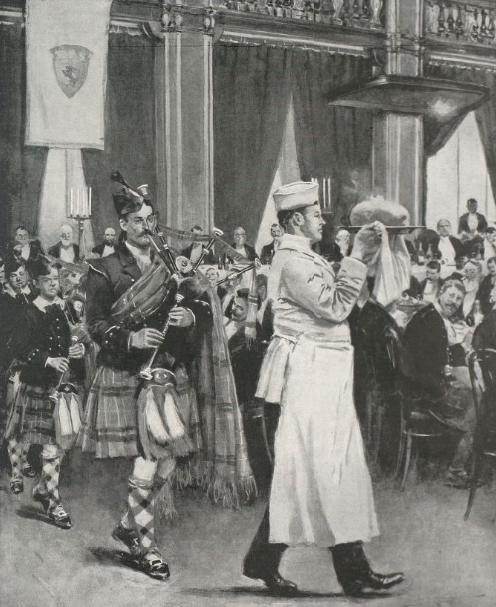
Then there is the other story behind St Andrew’s Scottish connection, which Massie also outlines:
Another version has it that relics of St Andrew (his holy bones) were brought to Fife by St Regulus (or Rule), who was a monk of Constantinople or Bishop of Patras. He landed at Muckross or Kilrimont (later St. Andrews), or was shipwrecked there, in 347.
A third, and final story, tells of how the ‘saint’s bones’ were brought to St. Andrews from ‘St Wilfred’s Abbey in Hexham,’ but whatever the truth of the tale, Massie relates how ‘by the middle of the 13th century St Andrew was established as ‘leader of the compatriot Scots.’’ He then tells of how:
Bruce carried the Saltire to Bannockburn and when the saint’s cathedral was re-consecrated in 1318 it was in a service of national thanksgiving ‘for the notable victory granted to the Scottish people by the blessed Andrew, protector of the realm.’ As Michael Lynch puts it in his History of Scotland, ‘the identification of saint and nation was complete.’

However, with the Reformation, ‘saints were out of fashion,’ and in particular St Andrew, whose connection with Rome meant that ‘Protestant writers were more inclined to stress the Kirk’s links of Columba, who was free of Roman taint.’ But St Andrew’s cross, the Saltire, ‘remained on the Scottish flag,’ despite, as Massie claims, the day itself not being celebrated.
But as the Scottish population began to spread around the world, Massie relates how ‘the celebration of the 30th November as the National Day of Scotland was revived among exiled Scots, and then spread homewards.’ And at least to Allan Massie, it was a day still worth celebrating, as he pens:
Does it mean anything today? Is it worth observing? I think it is, more than ever perhaps, because in this rapidly changing world anything which may contribute to an awareness of the past and our relationship to it is valuable…We may, as Christianity withers, have little sense of the Galilean fisherman or of what his relationship to Peter meant to medieval Scotland, but the idea of a national day, observed and celebrated, should be at the very least a reminder of the debt we owe to the past ages in which Scotland was formed.
In 2006 the importance of St Andrew’s Day was recognised in Scotland, when Scottish parliament passed the St Andrew’s Day Bank Holiday (Scotland) Act 2007, which made the day a designated bank holiday, although schools are not required to close, and employers are not required to give employees the day off.
Find out more about St Andrew, Scottish traditions, and much more besides, in the pages of our newspaper Archive today.
New Titles
| Title | Years Added |
| Kidderminster Shuttle | 1889 |
| Scotland on Sunday | 1988-2002 |
Updated Titles
This week we have updated sixteen of our existing titles.
You can learn more about each of the titles we add to every week by clicking on their names. On each paper’s title page, you can read a FREE sample issue, learn more about our current holdings, and our plans for digitisation.
| Title | Years Added |
| Atherstone News and Herald | 1997-1998 |
| Carrick Times and East Antrim Times | 1994 |
| Coleshill Chronicle | 1991-1992, 1997-1998 |
| Crowthorne Times | 1987 |
| Croydon Post | 1997-1998 |
| Edinburgh Evening News | 1982 |
| Football Post (Nottingham) | 1999 |
| Fulham Chronicle | 1990 |
| Gloucestershire Echo | 1986-1989 |
| Londonderry Sentinel | 1989, 1992-1994 |
| Lurgan Mail | 1990 |
| Peterborough Herald & Post | 1996 |
| Portadown Times | 1982-1997 |
| Protestant Vanguard | 1933-1934 |
| Skelmersdale Advertiser | 1987 |
| Western Evening Herald | 1999 |
You can keep up to date with all the latest additions by visiting the recently added page. You can even look ahead to see what we’re going to add tomorrow.


